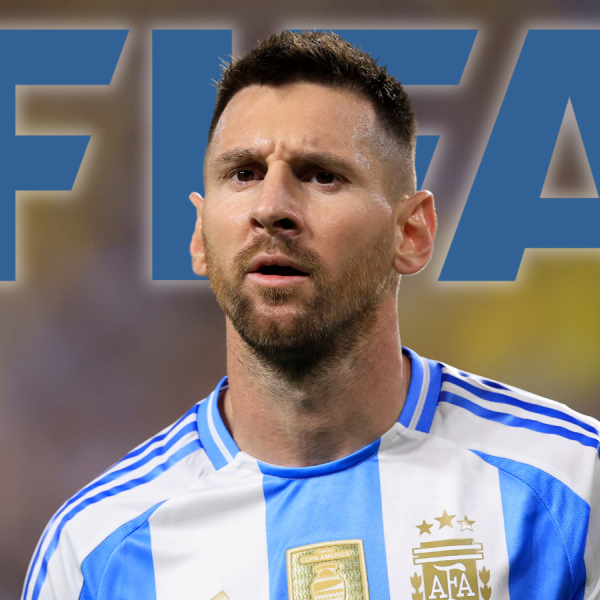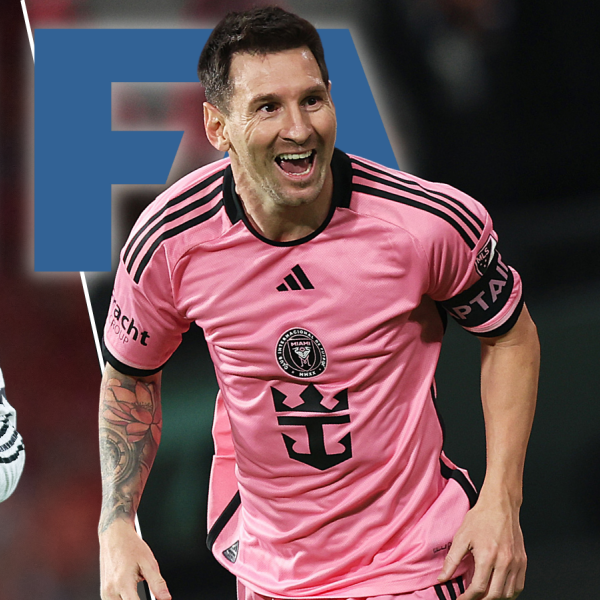If you haven’t turned on a television, listened to the radio, picked up a newspaper, scrolled through Twitter or checked Facebook in the last few weeks, let me get you up to speed: the national anthem is a BIG deal.
America’s “Star-Spangled Banner” became everyone’s favorite hot-take after San Francisco 49ers quarterback Colin Kaepernick began kneeling during the anthem in protest of racial inequality and, more specifically, the treatment of African Americans in the United States.
The debate gained even more steam when Seattle Reign and US Women’s National Team midfielder Megan Rapinoe joined in the protest to support Kaepernick’s cause.
But did you know these types of debates are not limited to just the United States? As it turns out, international soccer has quite a controversial history with national anthems, especially over the last decade.
Back in 2006, when Italy was on its way to winning the World Cup in Germany, one of their players came under heavy criticism for not singing the national anthem.
Midfielder Mauro Camoranesi, who was born and raised in Argentina, didn’t know the words to Italy’s national anthem but qualified to represent the Azzurri through a family ancestor.
Now, just about anyone would look unpatriotic standing next to Gigi Buffon in the pre-game national anthem lineup, but Camoranesi came under specific fire due to his immigrant history.

Italy's Mauro Camoranesi Photo: @Born_And_Red | Twitter
Speaking of immigrant history, look at the French national team. Much of Les Bleus’ success in recent years can be attributed to an influx of footballing talent with North African roots. Two famous examples are Karim Benzema and Samir Nasri, both born in France but to Algerian parents. Each have been involved in their own controversies surrounding France’s national anthem, “La Marseillaise”.
Nasri came under fire for laughing during the anthem. Benzema was seen spitting after the anthem was played in honor of the victims of the Paris terrorist attacks last November before Real Madrid’s match against Barcelona. In each case, members of France’s parliament called for each player to be banned from playing for the national team.
The same issue has found its way to Germany where politicians have openly criticized players such as Mesut Ozil for not singing the national anthem before matches with Die Mannschaft.

Mesut Ozil has been criticized in Germany. Photo: @ErmiasEmagne | Twitter
Clearly this is not just an American debate. Around the world, people are sensitive when it comes to their country’s national anthem. A certain level of pride and patriotism isn’t just desired, it’s an expectation.
But is this a fair criticism?
Is Mauro Camoranesi “not Italian enough” even though millions of Italians left their homeland for Argentina in order to escape the rise of fascism in Italy?
Should Samir Nasri and Karim Benzema be expected to sing France’s national anthem even though it’s actually a violent war song about blood-thirsty soldiers written in 1792 during the French Revolution — doubly so when you consider the atrocities suffered by Algeria at the hands of the French?
Is it not acceptable for Mesut Ozil to shy away from exaggerated displays of patriotism considering Germany’s fragile history with xenophobia?
And then there’s Megan Rapinoe. As an American citizen, her First Amendment right to freedom of speech is protected by the Constitution. Her form of protest, kneeling, is not putting anyone in harm’s way. And she’s doing it during the “Star-Spangled Banner”, which is actually just a portion of a longer poem written by Francis Scott Key during the War of 1812 in which he goes on to make references to slavery in our country.
But if history and soccer have taught us anything, it’s that people care deeply about their national anthem. And footballers, just like every other citizen, must be mindful of how their messages will be interpreted.







